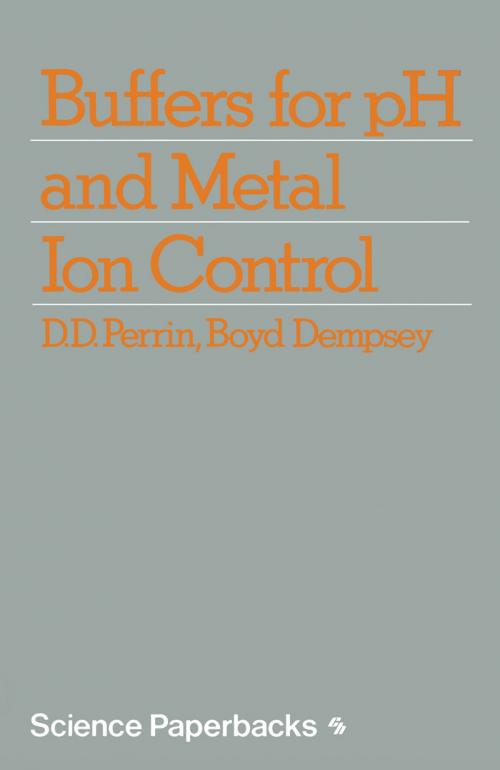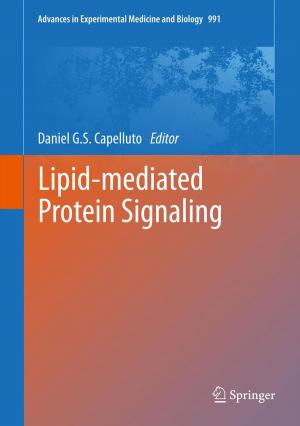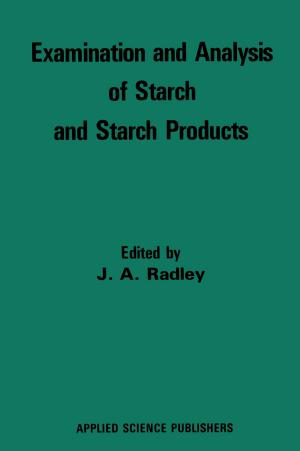Buffers for pH and Metal Ion Control
Kids, Natural World, Nonfiction, Reference & Language, Education & Teaching, Science & Nature, Science| Author: | D. Perrin | ISBN: | 9789400958746 |
| Publisher: | Springer Netherlands | Publication: | December 6, 2012 |
| Imprint: | Springer | Language: | English |
| Author: | D. Perrin |
| ISBN: | 9789400958746 |
| Publisher: | Springer Netherlands |
| Publication: | December 6, 2012 |
| Imprint: | Springer |
| Language: | English |
This book is intended as a practical manual for chemists, biologists and others whose work requires the use of pH or metal-ion buffers. Much information on buffers is scattered throughout the literature and it has been our endeavour to select data and instructions likely to be helpful in the choice of suitable buffer substances and for the preparation of appropriate solutions. For details of pH measurement and the preparation of standard acid and alkali solutions the reader is referred to a companion volume, A. Albert and E. P. Serjeant's The Determination of Ionization Constants (1971). Although the aims of the book are essentially practical, it also deals in some detail with those theoretical aspects considered most helpful to an understanding of buffer applications. We have cast our net widely to include pH buffers for particular purposes and for measurements in non-aqueous and mixed solvent systems. In recent years there has been a significant expansion in the range of available buffers, particularly for biological studies, largely in conse quence of the development of many zwiUerionic buffers by Good et al. (1966). These are described in Chapter 3.
This book is intended as a practical manual for chemists, biologists and others whose work requires the use of pH or metal-ion buffers. Much information on buffers is scattered throughout the literature and it has been our endeavour to select data and instructions likely to be helpful in the choice of suitable buffer substances and for the preparation of appropriate solutions. For details of pH measurement and the preparation of standard acid and alkali solutions the reader is referred to a companion volume, A. Albert and E. P. Serjeant's The Determination of Ionization Constants (1971). Although the aims of the book are essentially practical, it also deals in some detail with those theoretical aspects considered most helpful to an understanding of buffer applications. We have cast our net widely to include pH buffers for particular purposes and for measurements in non-aqueous and mixed solvent systems. In recent years there has been a significant expansion in the range of available buffers, particularly for biological studies, largely in conse quence of the development of many zwiUerionic buffers by Good et al. (1966). These are described in Chapter 3.















